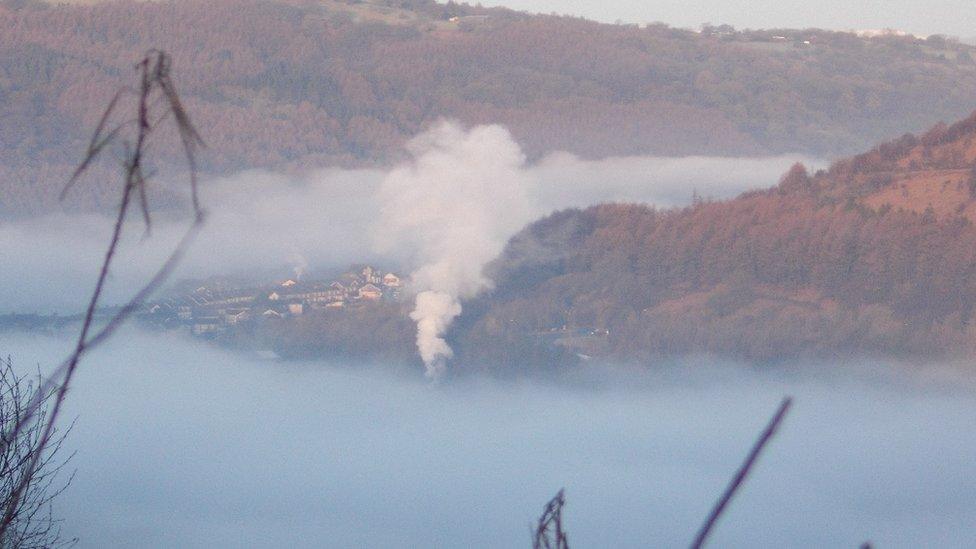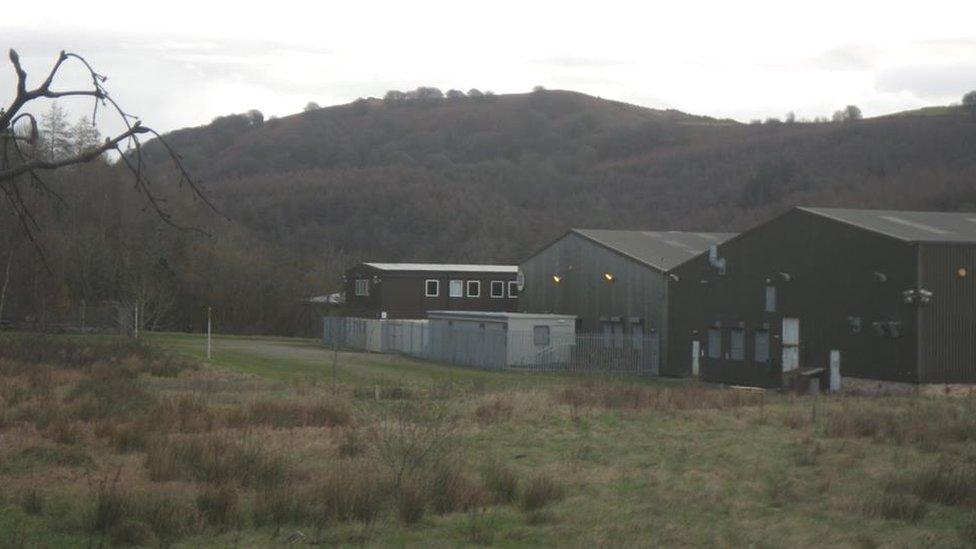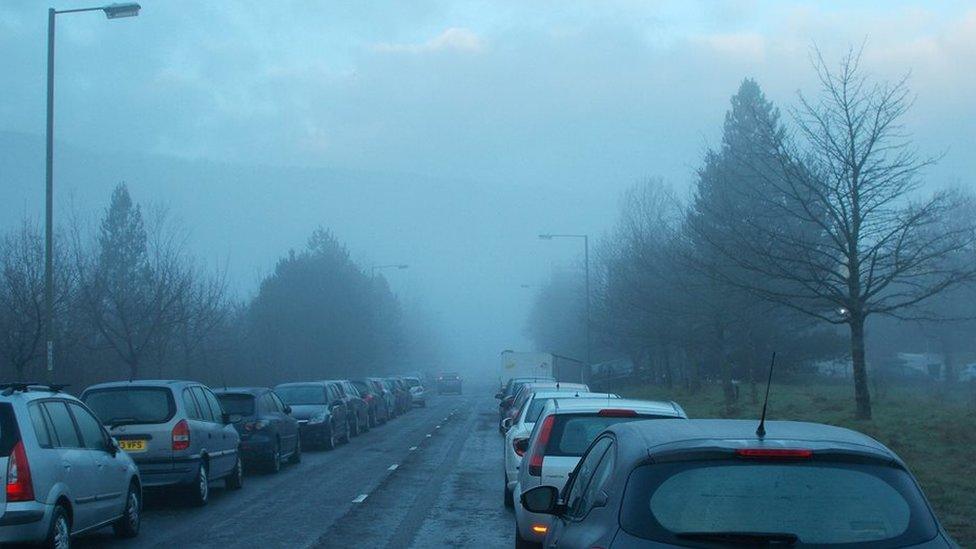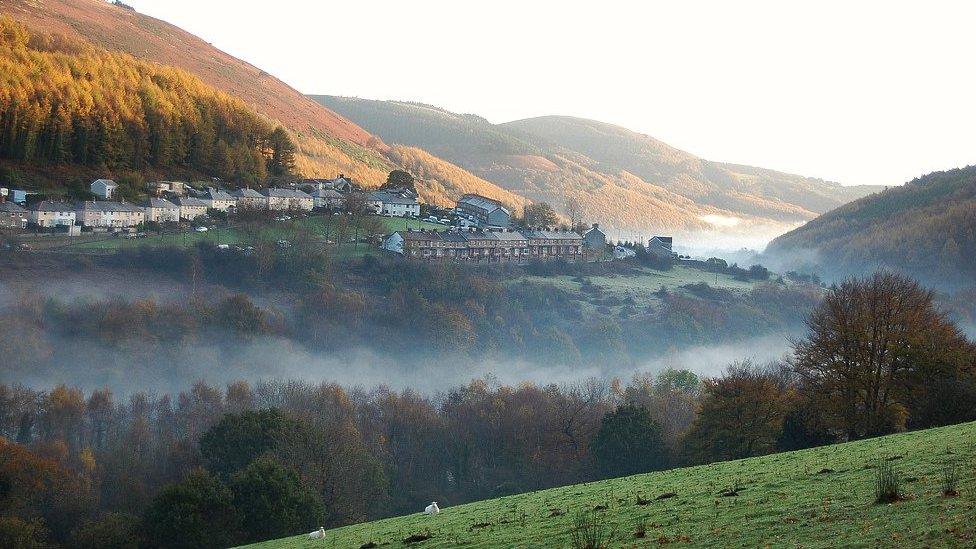Health expert raises Cwmfelinfach waste site concern
- Published

Health bosses are worried emissions could be trapped in the air above Cwmfelinfach
A health official has raised concerns that emissions from a planned waste processing plant in Caerphilly county may affect residents' health.
The rare weather phenomenon of temperature inversion could trap the plant's emissions over Cwmfelinfach, an Aneurin Bevan health board boss said.
Residents raised the issue before Caerphilly council approved the plans in December.
The firm involved said emissions would have a "negligible" impact.
Dr Gillian Richardson, executive director of public health at Aneurin Bevan University Health Board, has written to officials at Natural Resources Wales (NRW) recommending they "exercise caution" when considering granting the plant a permit.
The environmental body is consulting on whether to approve the development.
'No safe threshold'
Temperature inversion is where cold air is trapped in a valley by warm air above, preventing clouds and smog from escaping.
Residents opposing the development have argued it could also trap emissions.
Cwmfelinfach resident Wendy Jenkins tells BBC Wales' Jordan Davies she is "worried" about the effect emissions could have on her grandchildren's health.
The health board said temperature inversion was not taken into account in the original air quality assessment.
It recognised that any emissions would be within legal limits.
But Dr Richardson said new data showed the development would cause "significant short-term local air quality deterioration within an area of deprivation, including vulnerable populations".
She claimed "there is no known safe threshold of exposure" to an emission like nitrogen dioxide, which can irritate lungs and lower resistance to respiratory infections, such as influenza.

The proposed plant would turn 100,000 tonnes a year of household, industrial and commercial waste, which would normally go to landfill, into fuel.
The company behind it, Hazrem Environmental Limited, said nitrogen dioxide could be produced by any kind of factory.
A spokesman said: "The initial air quality assessment which was provided to NRW was based on a worst case scenario, as the exact specification of the dryer had not been received at the time of the permit application back last year.
"The dryer specification has now been decided on and the supplier has said that the NOx (mono-nitrogen oxides) emissions will be closer to 50mg/m3 rather than the predicted 300mg/m3 used in the air quality assessment.
"This updated information will be passed to both NRW and Public Health Wales for their consideration."

A Caerphilly council spokesman said: "In considering a planning application such as this, a broad range of assessments and surveys, including those on air quality and transport are given careful consideration before a decision is determined."
NRW operations manager Jon Goldsworthy added: "When we consider any application we look at the potential impact it could have and consult with health specialists.
"As part of the permit determination we will consider all the information available to us before we make a final decision."
- Published9 December 2015

- Published8 December 2015
